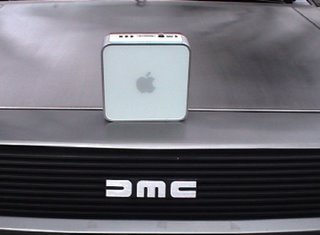Okay, let me be the first to state the abundantly obvious and admit openly that I'm a self-proclaimed techno-geek (big surprise, right?). I love using computers, gadgets, anything with buttons -- hence, this blog.
But the speech Jobs gave that day wasn't about
It was truly an historic moment in the course of human evolution, the moment at which we were on the one hand given the choice between accepting the information and scant meaningless, underpowered technology tools that were handed to us by the current regime running the technology game and on the other hand reaching out and adopting the technology that put the individual before the masses.
Enter Apple, with Jobs at the helm. From this moment forward, nothing would be the same. The day was January 24th, 1984...
Written by Andy Hertzfeld, Apple Computer Macintosh team from 1979-1984
"The big day had finally arrived. We had looked forward to the date for so long that it didn't seem real to be actually experiencing the long-awaited public unveiling of the Macintosh at Apple's 1984 annual shareholder's meeting. We were excited, of course, but also nervous about our hastily contrived demo software, and still exhausted from the final push to finish the system software.
I attended one of the rehearsals held over the weekend, to help set up the demo, and it was fraught with problems. Apple rented a powerful video projector called a LightValve, that projected the Macintosh display larger and brighter than I thought possible. But the Mac had to be connected to the projector through a special board that Burrell cooked up to compensate for the Mac's unique video timings, and the LightValve seemed to be quite tempermental, taking eons to warm up and then sometimes shutting down inexplicably. Plus, Steve wasn't into rehearsing very much, and could barely force himself into doing a single, complete run-through.
Most of the software team usually didn't come to work until after 10am, but this morning we gathered in our fishbowl office in Bandley 3 at 7:30am, so we could walk over together to the big auditorium at Flint Center, which was a half mile away. We got to the cavernous room (which seated up to 2,500) early, but it was already filling up, and soon it was packed tight, with standing room only. The software team sat up close in the second row, in a section reserved for Macintosh division employees.
Finally, the lights dimmed, and Steve Jobs appeared at a podium on the left side of the stage. He was resplendent in a finely tailored black suit complete with a prominent bow tie, looking more like a Las Vegas impresario than a computer industry executive. You could tell that he was nervous as he quieted the rousing applause and began to speak.
"Welcome to Apple's 1984 Annual Shareholders meeting. I'd like to begin by reading part of an old poem by Dylan, that's Bob Dylan", Steve flashed a big smile as he started to recite the second verse of "The Times They Are A-Changin'", stretching an occasional vowel in a Dylanesque fashion:
Come writers and critics
Who prophesize with your pen
And keep your eyes wide,
The chance won't come again
And don't speak too soon
For the wheel's still in spin
And there's no tellin' who that it's namin'.
For the loser now
Will be later to win
For the times they are a-changin'.
He thanked Apple's board of directors individually by name for their support in a turbulent year, and then turned the meeting over to Apple's chief counsel, Al Eisenstadt, to run the formal part of the shareholders' meeting. Al ran through some procedural stuff, and then he introduced Apple's CEO, John Sculley, who was just hired nine months ago, for a report on the business.
John reported on Apple's latest quarter, which saw disappointing Lisa sales more than balanced by a fantastic Christmas for the Apple IIe, whose sales had more than doubled from the previous year. But the crowd seemed distracted, impatiently waiting for the main event that was now imminent. John seemed to sense that, and hurried through the bulk of his presentation. Finally he concluded by thanking Mike Markkula and the executive staff for supporting him during his first few months at Apple, thanking one individual in particular.
"The most important thing that has happened to me in the last nine months at Apple has been a chance to develop a friendship with Steve Jobs. Steve is a co-founder of Apple, and a product visionary for this industry, and its my pleasure now to reintroduce Steve Jobs."
Steve reappeared on the left side of the stage as the lights dimmed again. "It is 1958", he began, speaking slowly and dramatically. "IBM passes up a chance to buy a young fledgling company that has invented a new technology called xerography. Two years later, Xerox was born, and IBM has been kicking themselves ever since". The crowd laughs, as Steve pauses.
Steve had cooked up this spiel for the sales meeting in Hawaii last fall, to introduce the 1984 commercial. I had seen him do it a few times by now, but never with as much passion, intensity and emotion, dripping from his voice.
"It is ten years later, the late sixties", he continued, speaking faster now. "Digital Equipment Corporation and others invent the mini-computer. IBM dismisses the mini-computer as too small to do serious computing, and therefore unimportant to their business. DEC grows to be a multi-hundred million dollar company before IBM enters the mini-computer market." Steve pauses again.
"It is now ten years later, the late seventies. In 1977, Apple Computer, a young fledgling company, on the West Coast, introduces the Apple II, the first personal computer as we know it today. IBM dismisses the personal computer as too small to do serious computing, and therefore unimportant to their business," Steve intoned sarcastically, as the crowd applauds.
"The early 1980s. 1981 - Apple II has become the world's most popular computer, and Apple has grown to a 300 million dollar corporation, becoming the fastest growing company in American business history. With over fifty companies vying for a share, IBM enters the personal computer market in November of 1981, with the IBM PC." Steve is speaking very quickly now, picking up momentum.
"1983. Apple and IBM emerge as the industry's strongest competitors, with each selling approximately one billion dollars worth of personal computers in 1983. The shakeout is in full swing. The first major personal computer firm goes bankrupt, with others teetering on the brink. Total industry losses for 1983 overshadow even the combined profits of Apple and IBM."
He slows down, speaking emphatically. "It is now 1984. It appears that IBM wants it all. Apple is perceived to be the only hope to offer IBM a run for its money. Dealers, after initially welcoming IBM with open arms, now fear an IBM dominated and controlled future and are turning back to Apple as the only force who can ensure their future freedom."
Steve pauses even longer, as the crowd's cheering swells. He has them on the edge of their seats. "IBM wants it all, and is aiming its guns at its last obstacle to industry control, Apple. Will Big Blue dominate the entire computer industry? The entire information age? Was George Orwell right?"
The crowd is in a frenzy now, as the already famous 1984 commercial, which was shown for the first and only time during the Superbowl two days ago, fills the screen, featuring a beautiful young woman athlete storming into a meeting of futuristic skinheads, throwing a sledge-hammer at Big Brother, imploding the screen in a burst of apocalyptic light. By the time the commercial is finished, everyone in the auditorium is standing and cheering.
All this time, a lone Macintosh has been sitting in its canvas carrying case near the center of the stage. Steve walks over to the bag and opens it up, unveiling the Mac to the world for the very first time. He pulls it out and plugs it in, inserting a floppy, and the demo begins to run, flawlessly. The Macintosh becomes the first computer to introduce itself, speaking in a tremulous voice:
Hello, I am Macintosh. It sure is great to get out of that bag!
Unaccustomed as I am to public speaking, I'd like to share with you a maxim I thought of the first time I met an IBM mainframe: Never trust a computer that you can't lift!
Obviously, I can talk, but right now I'd like to sit back and listen. So it is with considerable pride that I introduce a man who has been like a father to me... Steve Jobs!
Pandemonium reigns as the demo completes. Steve has the biggest smile I've ever seen on his face, obviously holding back tears as he is overwhelmed by the moment."
==================================
When talking about the impact personal computers have had on the world since the early 1980's, you often hear people say "Who knew?". The visionaries at Apple knew, that's who.


 Officials at an elementary school south of Boston have banned kids from playing tag, touch football and any other unsupervised chase game during recess for fear they'll get hurt and hold the school liable.
Officials at an elementary school south of Boston have banned kids from playing tag, touch football and any other unsupervised chase game during recess for fear they'll get hurt and hold the school liable. * In 1993, McDonald's was unsuccessfully sued over a car accident in New Jersey. While driving, a man who had placed a milkshake between his legs, leaned over to reach into his bag of food and squeezed the milkshake container in the process. When the lid popped off and spilled half the drink in his lap, this driver became distracted and ran into another man's car. That man in turn tried to sue McDonald's for causing the accident, saying the restaurant should have cautioned the man who had hit him against eating while driving.
* In 1993, McDonald's was unsuccessfully sued over a car accident in New Jersey. While driving, a man who had placed a milkshake between his legs, leaned over to reach into his bag of food and squeezed the milkshake container in the process. When the lid popped off and spilled half the drink in his lap, this driver became distracted and ran into another man's car. That man in turn tried to sue McDonald's for causing the accident, saying the restaurant should have cautioned the man who had hit him against eating while driving.





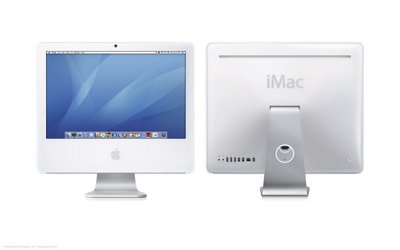



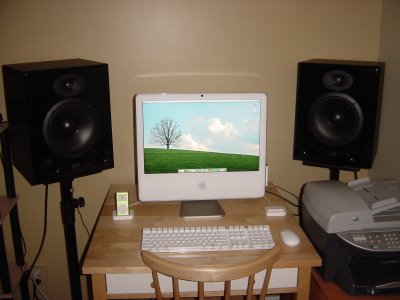

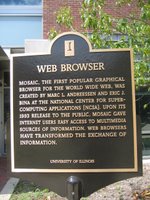






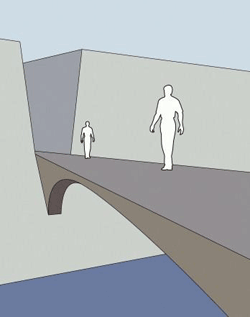 The phone has been ringing as more companies are realizing that this chasm is costing them lost productivity through development of solutions incompatible with business needs. This is more of a question of accurate communication and less a question of headcount under the hood.
The phone has been ringing as more companies are realizing that this chasm is costing them lost productivity through development of solutions incompatible with business needs. This is more of a question of accurate communication and less a question of headcount under the hood.